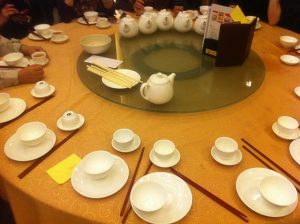
11 Nov Asian Business Etiquette Tips
Individuals who live and work in the western world often go through culture shock when they visit Asia, as things are done much differently on that continent. Before doing business in the region, individuals need to learn the basics of Asian business culture to ensure they don’t offend anyone or inhibit the business dealings. The Commandments of Asian Business Etiquette are of great help in ensuring any interaction in the region doesn’t violate social, workplace, or office etiquette intentionally or unintentionally. Also interesting: how a virtual dataroom supports a company in international bussiness with secure access to data around the world.
Remaining Anonymous
Individuals in Asia prefer to remain anonymous in a group. They tend to be introverted when it comes to business, although the same may not be true when they are in social settings. As a result, getting them to ask questions or participate in an audience discussion can be difficult. The reason for this is they don’t wish to show they aren’t knowledgeable about the topic. The old adage about no question being stupid doesn’t hold true in Asia, and no person wants to run the risk of humiliating themselves publicly.
Participation Doesn’t Mean Influence
People often overlook those who are quiet in Asian business situations. However, this mistake should never be made when one is doing business in Asia. The person with the most influence may also be the quietest in the room. There is no way to know, so one should never assume.
Prepare To Join In Activities While In Asia

By 2012 Hatestye – Own work, CC BY-SA 3.0, https://commons.wikimedia.org/w/index.php?curid=18671658
Business dealings in Asia often involve attending a dinner or local festival. Before traveling to the region, learn about what Asians consider appropriate behavior in these situations. In China it is acceptable to belch and slurp at meals as it is considered to be a sign of enjoying the meal. Educate yourself regarding which gifts are considered acceptable, which ones are to be avoided, and how to avoid giving offense intentionally or unintentionally. Take time to learn what is considered acceptable in an Asian home, as a home visit may be part of the experience.
Don’t Be A Know-It-All
Asians do not appreciate being told what is good for them, even when others can see that their actions make no sense. Try to see the situation from their point of view. When a relationship built on trust has been established, then and only then will it be okay to share an opinion of why something may not work and what may be of benefit instead. However, make sure this exchange is one of collaboration. If the other person feels as if the conversation is one-sided, he or she may ignore what is said. This is true even when the other person is completely lacking in knowledge of the subject at hand. The goal is to allow them to feel as if they are knowledgeable while sharing the information. Furthermore, making someone feel inadequate in front of others should be avoided at all costs.
Learn Basic Asian Phrases

Business Card Etiquette
When presenting a business card to another person, use both hands to do so, and accept their card in the same way. Look at the business card before putting it away or the person who shared the card will assume you are being rude. The exchange of business cards in this manner is seen as a sign of respect and an essential part of workplace etiquette.
Share Product Information
Asians love to know what a product is capable of doing as opposed to how it will be of benefit to them. Asian companies tout the features of their products, as the components mean nothing to the consumer. They want to know how the components work together and how this combination is better than anything else. Western culture is more about the experience, yet this isn’t the case in Asia.
Furthermore, Asians wish to learn something from the exchange of information. They feel being educated about the features of a product helps them achieve this goal. As a result, it is best to share all product features with the audience when working in Asia.
This is only a basic primer on Asian etiquette. Any person planning to spend time in the region doing business must take the time to learn what is culturally acceptable and what is to be avoided. By doing so, a person finds they can smooth the way for business dealings and have an enjoyable visit while doing so.

Sorry, the comment form is closed at this time.